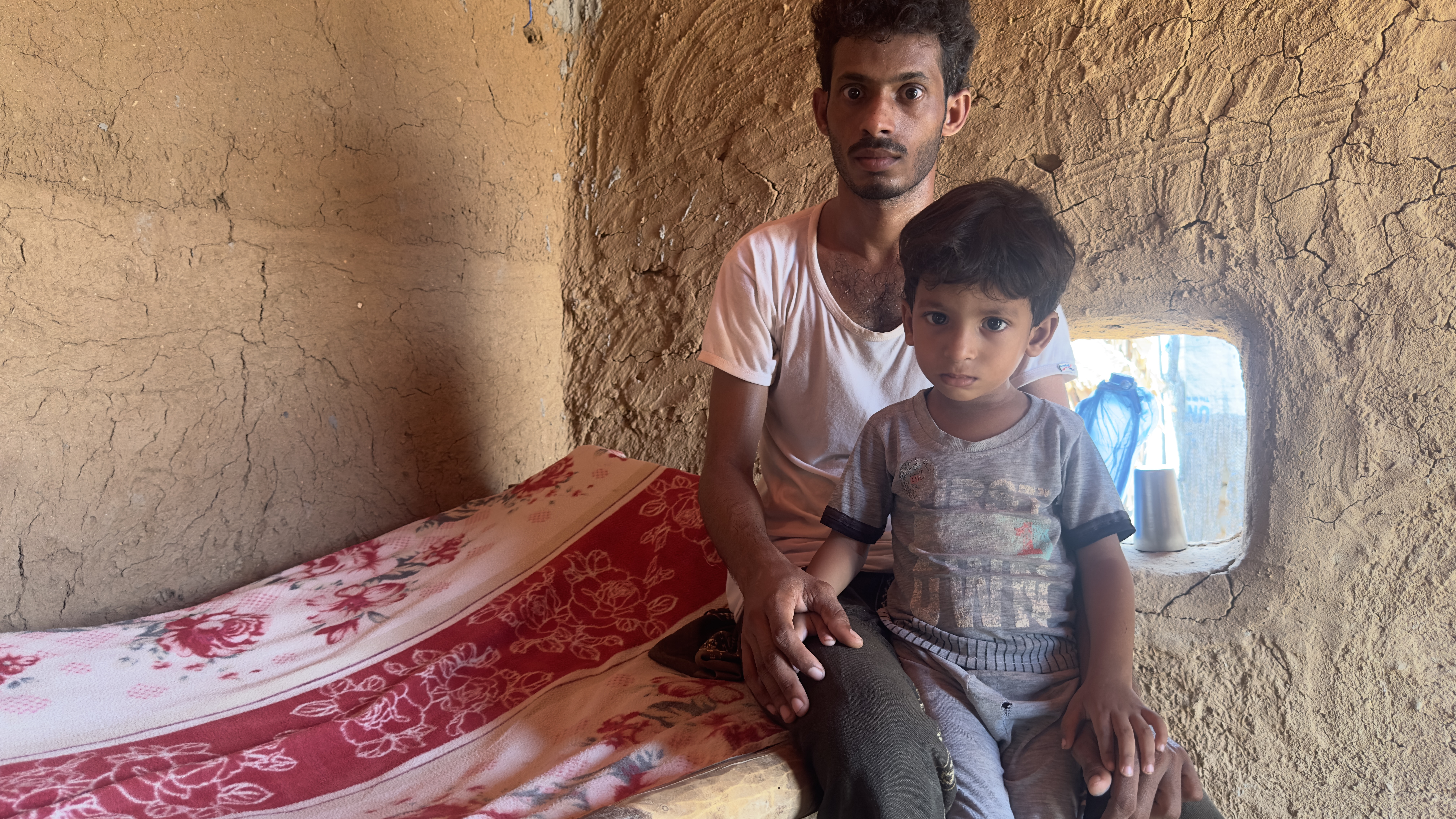The economic collapse has caused food prices to skyrocket, making it nearly impossible for many families to afford basic necessities. The Yemeni Rial has depreciated significantly, and inflation has soared, doubling the cost of food. As a result, many Yemenis struggle to eat even one meal a day, let alone three.
Life in Hodeidah Governorate, western Yemen, is a daily struggle, marked by uncertainty and hardship. Yahya Mohab lives with his family in the district of Az Zuhra, struggling with the dire needs. Yahya’s story is one of resilience and challenges, a testament to the impact of humanitarian aid in the most challenging circumstances.
“Sometimes we manage to eat for a day, only to go without food the next,” Yahya describes the daily struggle to secure enough food. The scarcity of food is a constant worry for families such as Yahya’s. Children are among the hardest hit by this crisis. Malnutrition rates are alarmingly high, with at least five million children under the age of five requiring treatment for acute malnutrition. Many children suffer from stunted growth and other health issues due to the lack of proper nutrition.
Yahya’s son, Yousif, once suffered from severe acute malnutrition (SAM). The child’s sight had become so fragile, it was a heart-wrenching experience for Yahya to witness helplessly. However today, there is a note of gratitude in his voice as he says, “Yousif is now, thankfully, so much better and is recovering.” The improvement in Yusif’s health is indeed a source of joy for the entire family, a sign that better days are possible.


